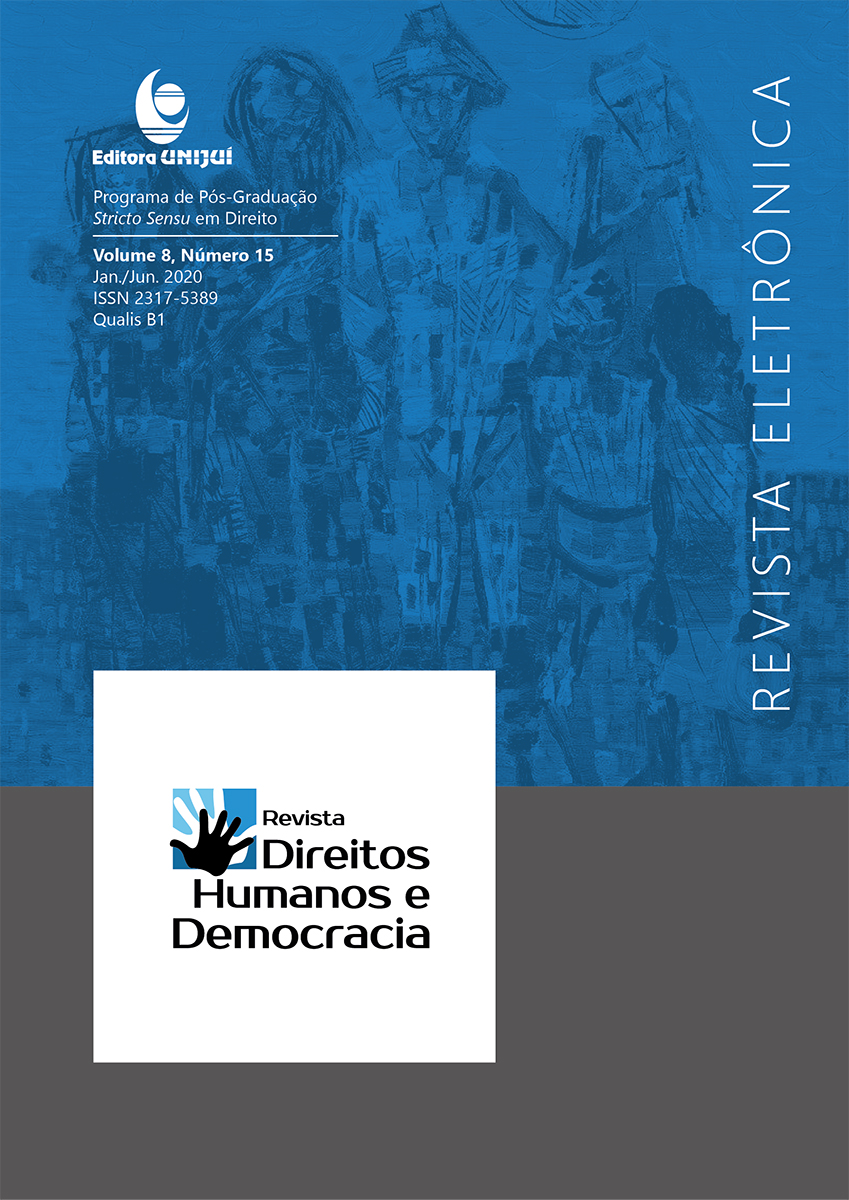A ETERNA LUTA CONTRA A SOMBRA DA TORTURA E DOS CRIMES POLÍTICOS SOFRIDOS, EM DEFESA DA DIGNIDADE HUMANA
DOI:
https://doi.org/10.21527/2317-5389.2020.15.217-235Resumo
A tortura é uma forma degradante de violação aos direitos humanos e da dignidade humana.com prisões e condenações sumárias sem o direito ao contraditório, prisões ilegais, torturas, mortes e pessoas desaparecidas por crimes políticos e conexos. A lei da anistia consistiu em uma espécie de perdão a todos aqueles que cometeram crimes considerados pelo Estado como atentatórios a dignidade da pessoa humana, no período de 1961 a 1979, fazendo com que as violações aos direitos humanos ocorridos na época ficassem sem punição por parte do Estado, a partir do momento em que a lei passou a vigorar no ordenamento pátrio, em 1979. Mesmo diante de uma ADPF questionando a revalidação da lei 6683/79, e a condenação do Estado Brasileiro por parte da Corte Interamericana, a lei não foi retirada do ordenamento, com seus efeitos repercutindo até os dias atuais. É preciso analisar quais normas, convenções e declarações internacionais foram infringidos com a tortura no período ditatorial. Quais os efeitos nocivos à vida humana. Danos físicos, morais, psíquicos e mentais foram causados às vítimas em um período de escuridão nos direitos, onde o poder massacrou aqueles que se colocaram contrários ao mesmo, e as torturas foram aplicadas, criando a desesperança, a perda da liberdade, da vida e da dignidade.
Downloads
Publicado
Como Citar
Edição
Seção
Licença
Ao publicar na Revista Direitos Humanos e Democracia, os autores concordam com os seguintes termos:
Os trabalhos seguem a licença Creative Commons Atribuição 4.0 Internacional (CC BY 4.0), que permite:
Compartilhar — copiar e redistribuir o material em qualquer meio ou formato;
Adaptar — remixar, transformar e criar a partir do material para qualquer fim, inclusive comercial.
Essas permissões são irrevogáveis, desde que respeitados os seguintes termos:
Atribuição — os autores devem ser devidamente creditados, com link para a licença e indicação de eventuais alterações realizadas.
Sem restrições adicionais — não podem ser aplicadas condições legais ou tecnológicas que restrinjam o uso permitido pela licença.
Avisos:
A licença não se aplica a elementos em domínio público ou cobertos por exceções legais.
A licença não garante todos os direitos necessários para usos específicos (ex.: direitos de imagem, privacidade ou morais).
A revista não se responsabiliza pelas opiniões expressas nos artigos, que são de exclusiva responsabilidade dos autores. O Editor, com o apoio do Comitê Editorial, reserva-se o direito de sugerir ou solicitar modificações quando necessário.
Somente serão aceitos artigos científicos originais, com resultados de pesquisas de interesse que não tenham sido publicados nem submetidos simultaneamente a outro periódico com o mesmo objetivo.
A menção a marcas comerciais ou produtos específicos destina-se apenas à identificação, sem qualquer vínculo promocional por parte dos autores ou da revista.
Contrato de Licença: Os autores mantém os direitos autorais sobre seu artigo, e concedem a Revista Direitos Humanos e Democracia o direito de primeira publicação.













